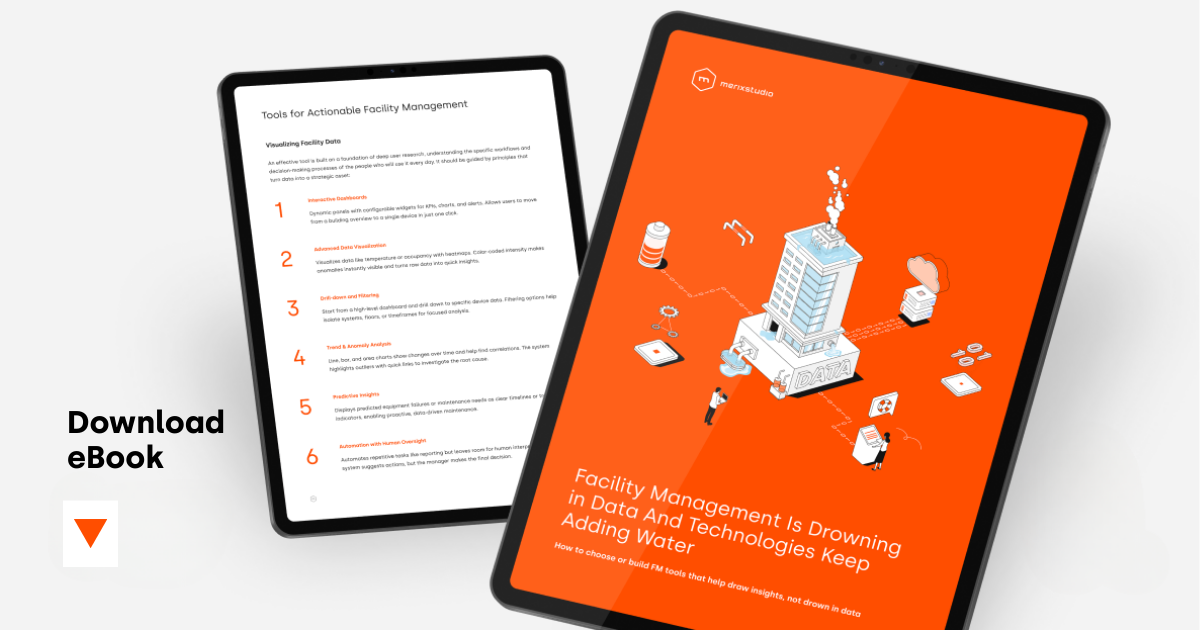In January 2020, the Journal of Financial Economics released a study showing how venture capitalists make investment decisions. After talking to almost 900 institutions, the researchers showed that although VCs are perfectly aware of how technology can leverage the competitive advantage, 90% of investors find the management team and their characteristics tip the scales of investment’s success. Interestingly, business factors such as the business model, the product itself, and the market earned 10, 20, and 30 percentage points less. So what are the factors that might attract investors’ attention when it comes to the founders and their teams?
Hard pillars - knowledge and skills
Business approach
Let's get this straight - your idea can be the most innovative ever, but when it doesn't appear to bring profits - nobody will reach for their wallet. To convince the investors that you're not another visionary divorced from reality but a fully blooded entrepreneur, you need to show the nuts and bolts of your business plan. How is your product going to make money? What is your more or less direct competition? How are you going to reach your users? Find the right data showing the market size, prepare financial forecasts and the company's roadmap.
There's a lot to think about, so in-depth research and a comprehensive, battle-tested process of gathering information are crucial. Try to harness methodologies like design thinking, which can help you to arrange and verify your knowledge. Ensure that everyone in the team understands and shares the business vision, even if their job is not directly related to financials.
Good understanding of a product
When you're looking for investors for the first time, your product is probably far from pixel-perfect and your vision of its development will change a couple (or even a couple more) times till the market launch. And that's fine and completely normal at this stage of your startup journey. Still, that doesn't mean you shouldn't think through all the aspects of your product to have a deep understanding of it and be able to explain the whole idea.
That's one of the core areas of preparation for meeting with investors. You don't have to know all the answers, nonetheless, you need to cover as many questions as possible. The knowledge might be distributed among team members specializing in particular fields. Remember, if you don't have expertise in some area, that does not release you from gaining it, whether by introducing professionals in your team or by cooperating with them externally.
Lack of tech expertise? Check how you can start building your digital product when you're a non-tech founder!
Of course, the recommended way to demonstrate every nook and cranny of your product is to show some visuals, video explainers, or, ultimately - a prototype. A prototype will provide people who are about investing their money in your vision the ability to literally click through it. It also shows something more. Investors perceive it as an additional effort you made and the proof of your engagement in the project. This is why it's worth running an extra mile, showing you care, and the startup you're building is not a hobby nor a temporary occupation for you.
Know your users, validate the idea
Although getting ready for a Q & A series about your product is necessary, mind that for the investors, an essential aspect is not the product or service per se but the problem it solves. That's the thing you should focus on. Describe the product through the prism of your users' needs, show how they can use it, and explain why they will do it.
This is not only a basis of storytelling and one of the pitch deck best practices but it's also proof you've done in-depth research about the target audience. The effort will be rewarded sooner or later as it reduces the risk of failure. Just to mention - 42% of startups that didn't manage to succeed, identify the lack of market need as a number one reason for their failure. Don't increase this statistic.

What will be even more valuable for investors is not only your knowledge about the target group but also some of their first feedback about your product. To validate the ideas and visions, you can use interviews or more sophisticated surveys. No matter which method you'll choose, the aforementioned prototype would be an extremely useful tool to present the product and gather opinions.
Check how to make a prototype that will get investors to fund your startup?
For the early-stage startups, this can be one of the not too many ways to show investors the traction, e.g., by pointing out how many respondents intend to pay for your product when it will be available on the market.
Soft skills - where personality meets approach
As a founder, you are the strongest asset of your endeavor. Think of it this way - how you react to changes, difficulties, and make decisions in the moments of danger matters as much as your knowledge. The same applies to each member of your core team.

There are whole long lists of “what a great CEO should be like”, but for the sake of this article (and for the sake of keeping your mind sane), we’ll take a look at only one of them. Resilience - the most important trait that differentiates the management teams that, in the end, earn new funds from those who need to go home with a bitter taste of defeat in their mouth.
Why is it so hard to find a good CEO?
It would be wonderful if there were places where great CEOs could be raised and formed: a school, a university, or a business course. Yet if you listen to successful entrepreneurs who built their fortune on founding and selling companies, like Ben Horowitz, you’ll realize there’s no shortcut here.
Horowitz, an author, and a general partner in a16z, one of the most respected VC funds, puts it clearly in his brilliant book The Hard Thing About Hard Things.
People always ask me, “What’s the secret to being a successful CEO?” Sadly, there is no secret, but if there is one skill that stands out, it’s the ability to focus and make the best move when there are no good moves. It’s the moments where you feel most like hiding or dying that you can make the biggest difference as a CEO[…]to make it through the struggle without quitting or offering up too much.”
Experienced investors have worn your hat, sometimes many times before. They built businesses and teams who ran them. That’s why it’s not easy to trick their guts. Great CEOs are a rare breed, but experienced minds can sense the signs that someone could become one by looking at one’s past experiences, leadership skills, and ability to grow from setbacks. They define your startup just as much as your product and technology.
Resilience is key
Based on numerous interviews with business owners who happened to build and lose fortunes more than once, Diane Coutu, a co-author of the Harvard Business Review Emotional Intelligence Series, finds no second capability desirable in business as much as resilience. Resilient business founders tend to build their undertakings on three pillars researched in detail by psychologist Susan Kobasa. These are challenges, commitment, and personal control.

You can easily guess how vital these elements are in a fast-evolving and competitive environment, such as a tech startup. What’s more, all three apply just as much to the CEO himself/herself as well as to the management team.
Challenges
How do you deal with problems that come your way? Are you able to see them as challenges to overcome or as paralyzing obstacles you don’t want to face? Investors know that there will be difficult decisions to make at every stage of your company’s growth. Some will leave you shattered.
Developing the ability to treat the odds like a challenge helps founders find an acute sense of perspective. They don’t hide the bad news either from themselves or from their teammates but confront them, looking for a solution out to the very last moment.

What does it mean to an investor? A founder who appreciates challenges will be confident but humble. Smart investors will want to get into a mentor-mentee relationship with you. Such an attitude will require an open mind and the ability to listen to your mentors’ advice and trust them. If you’re not humble enough to change your course based on external guidance, it’s a sign you might not be ready for an investment round.
Commitment
When looking for investors, you expect more than just steady growth. It’s a steep shape you’re looking for both in the sense of the number of your app’s users and a learning curve. Keeping a committed team in times of rapid growth is a challenge of its own. Still, it is possible to accomplish under two conditions:
- Your team trusts you and your decisions.
- You are an inclusive founder who listens to what your team (and your mentors) have to say.
Long story short, there is also another side to this coin. Commitment also means the ability to stay true to one’s word. If investors request information, they want you to deliver it without hesitation. As Marcia Nelson of Sharenett (a global network of professional investors) puts it:
When startup’s management takes too long to get us requested information – while it may not kill a deal, it will certainly make us more cautious.
Personal control
Horowitz shows that one of the most challenging things a CEO has to deal with is keeping a sane mind when everything seems to burn. You probably don’t want to hear that things can go wrong, but as the history of many startups shows, it happens at some point, even to the best.

Resilient people can differentiate the situations they can have control over from the ones they can’t. While the first gives confidence and a sense of empowerment, the latter drains out energy bringing the feeling of being lost, helpless and worried.
Sounds crazy that such a thing can have an impact on your startup’s being funded or not? Think from an investor perspective. They need a cool-headed person who can bring everyone on board when necessary and keep their motivation high. That’s when you can make decisions, not when you’re helpless or desperate.
Resilience in teams
Apart from your traits, investors will also look for your ability to build strong and competent teams. Such an ability shows in:
- the moments you hire new people,
- the way you hire them,
- the way you help your team grow,
- the moment and the way you fire.
None of the above is easy, although all those abilities are essential to run a trustworthy company you want to build with your investors’ help.
Choosing co-founders and maintaining the relationship
Even if there is a number of startups founded by a single entrepreneur, running a business with a partner is still most common way to achieve success. More than 80% of unicorns had at least one co-founder who had run a company before.

Source: startupstash.com
Chances are, you have a co-founder, too. It may be your high-school or college friend with a set of complementary skills.
So far, so good. What you have to keep in mind is that your business vision has to be aligned. You need to share the same values and expectations. Otherwise, you won’t be able to move the company forward in the same direction. No one knows it better than VC founders. Cliche as it may sound, based on his experience, Gary Tan, a managing partner in a seed-stage VC firm, reveals how important a co-founder alignment is.
Avoiding conflict, hiding in the silos of one’s responsibilities, and rapid success - Tan shows them signs that can derail a startup because co-founders don’t cooperate. Being friends and having a history together makes no difference in this case.
Choosing the engineering team
Apart from choosing business partners, you’ll have a significant share in recruiting the engineering team. Investors often analyze the choices you make in this area:
- Are you able to attract top talents?
- Are you able to work with people smarter than you?
- How do you get the right balance of responsibility and expertise?
- Do you bet on doing everything yourself or you’ve backed your endeavor up with an external team of professionals?
Your team’s vision, composition, and growth pace show your ability to plan long-term and execute your vision, no matter if you’re building a team 100% in-house or use a blend of internal and external talents.
Meeting these expectations? Then meet the investors!
When looking for funding, you need to be aware that investors will screen not only your startup and its product but also you and the management team. The way you react to challenges, changes, and guidance will become apparent factors of whether your company can grow, scale, and become a global success. What’s important, at each of these stages, you’ll need different skills within your management team.
What will not change is the ability to overcome challenges, motivate yourself and your team to the extreme commitment, and keep a sane mind on the way. In a nutshell, besides necessary knowledge and skills, you need to be equipped with resilience - the number one psychological sign you’ll make a great CEO. A sign that your funding may weigh more than the numbers and the potential of your product. After all, it is people who stay behind products’ success - not the opposite.
If you're looking for support in preparing for meeting the investors, our Startup DNA package is just made for you!
.svg)







.svg)
.svg)
.avif)

.avif)
.avif)
.avif)
